10 Unexpected Ingredients to Make Delicious Salads

In many kitchens, salads are relegated to the sidelines and treated as an afterthought to the main course. However, when done right, a well-composed salad—fresh, balanced, and unexpected—can easily steal the show. Choosing surprising ingredients and making creative calls on how to combine them will make the most lasting impression.
Olivier Rousselle, a chef for The Godfrey Hotel Hollywood’s ALK (About Last Knife) in Hollywood, California, adds that if you want your salad to take center stage, quality control is key.
“I always like to pick farmer’s market ingredients, as opposed to store-bought—the difference is huge in terms of flavor and texture,” he tells Best Life. “For example, tomatoes in stores are all shiny and perfectly shaped but sometimes bland. Heirloom tomatoes grow to funky shapes and colors, but they burst with flavor and are full of nutrients.”
But don’t head to the farmer’s market just yet—you’ll need to make your grocery list first. These are the 10 unexpected salad ingredients you’re going to want to try, according to top-tier chefs.
RELATED: 12 Best Things to Serve at a BBQ, Experts Say.
1
Watermelon
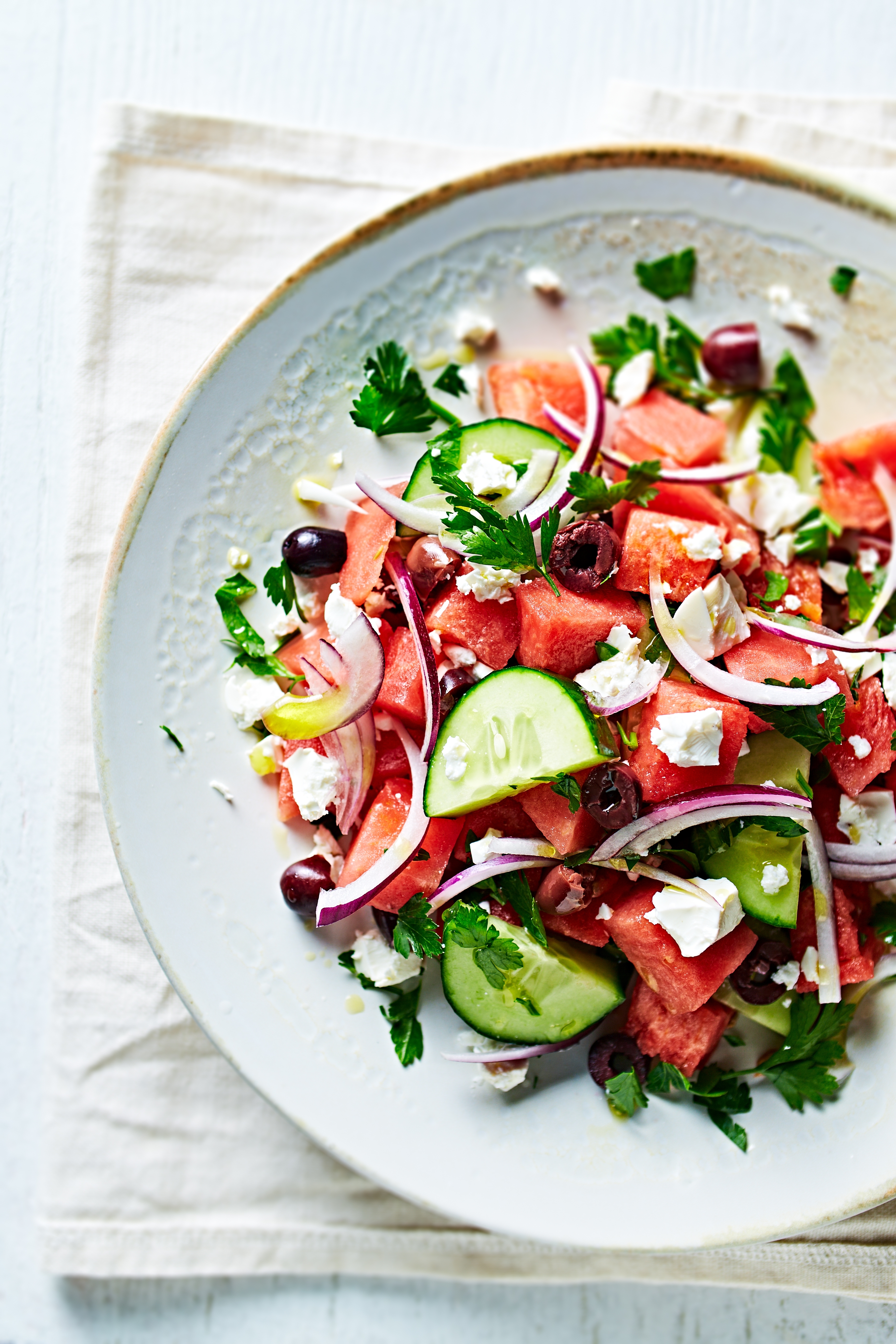
Taking cues from seasonal changes is a great way to keep your ingredients fresh and to always introduce something new to your salads, says Nate Molina, executive chef for The Genesee Store in Taylorsville, California. As summer approaches, he recommends adding watermelon for a light, sweet, crunchy addition.
“Spring and Summer are great times to brunch as there are so many wonderful seasonal ingredients available to play around with,” Molina tells Best Life.
He says that one of his favorite recipes includes watermelon, arugula, and pickled red onions with toasted pepitas, feta cheese, and balsamic glaze. This pairs easily with steak and scrambled eggs or bagels and lox with cream cheese and capers, he notes.
“I will often make this salad when we are hosting a late spring or early summer brunch. It always surprises our guests as the ingredients are unusual, the flavors work well together, and it’s a very vibrant addition to the table,” he says.
2
Purple cabbage
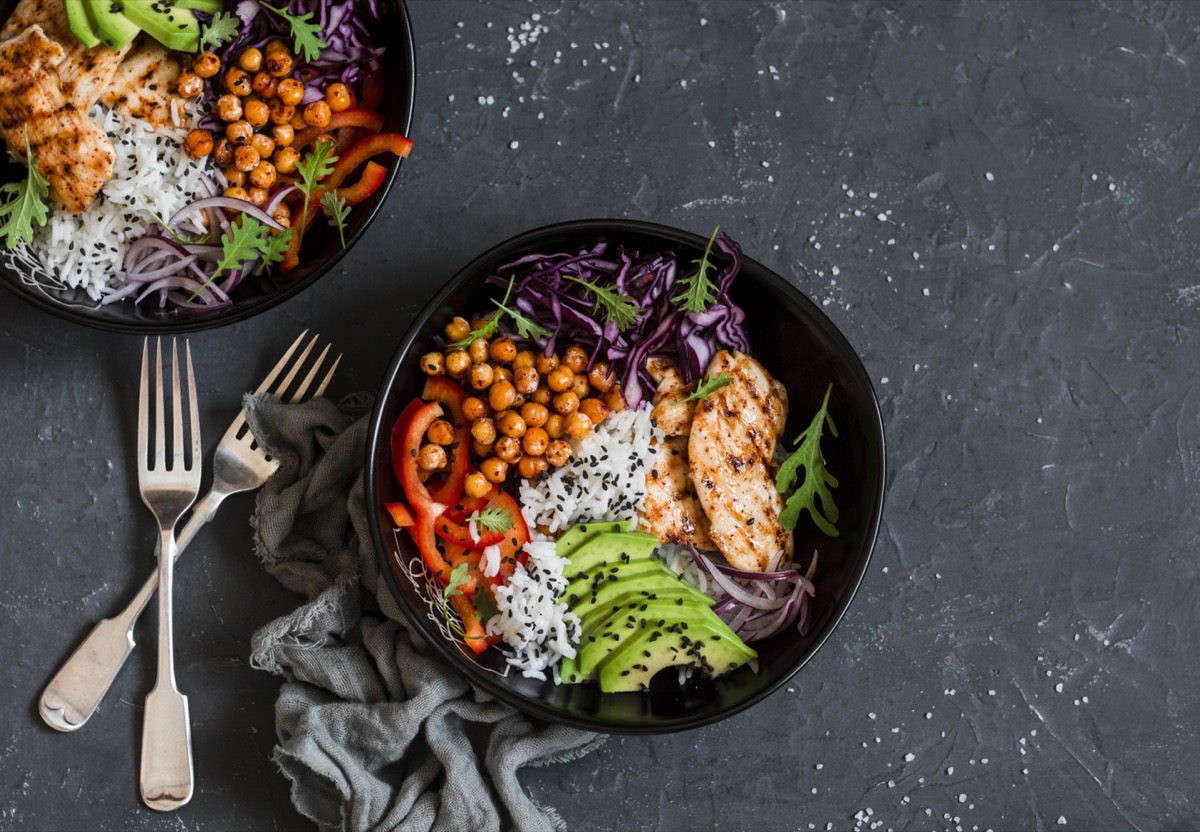
Flavor isn’t the only factor to consider when making a salad—your goal should be to stir all the senses.
“When building a salad, I like to keep color in mind and use a variety of leafy greens so that people can start to enjoy the salad before they eat it,” says Donnie Forehand, chef de cuisine for Cambria Hotel Austin Downtown’s Limestone Rooftop.
“One of my favorite combinations for a base is baby spinach, baby arugula, finely shredded carrots, and finely shredded purple cabbage. It makes a beautiful flavor and color combination, and it is a great base for many additional ingredients,” he says.
RELATED: 36 Pantry Staples Every Home Cook Needs.
3
Candied or roasted nuts
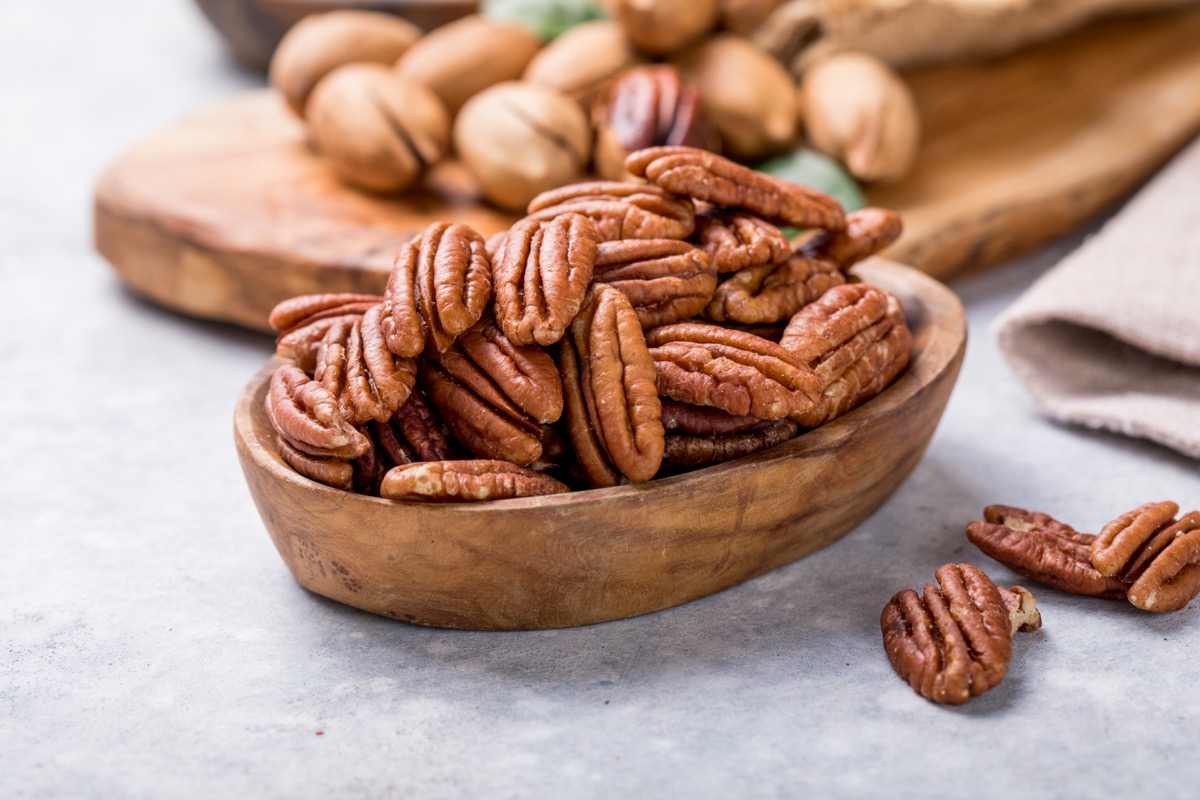
Including candied or roasted nuts can also add a surprising twist to your salad, says Forehand. Try choosing a flavor profile that contradicts the rest of your salad: For instance, put sweet caramelized pecans atop an otherwise savory salad or roasted walnuts over a sweeter salad with pear, cranberries, and goat cheese.
4
Sumac
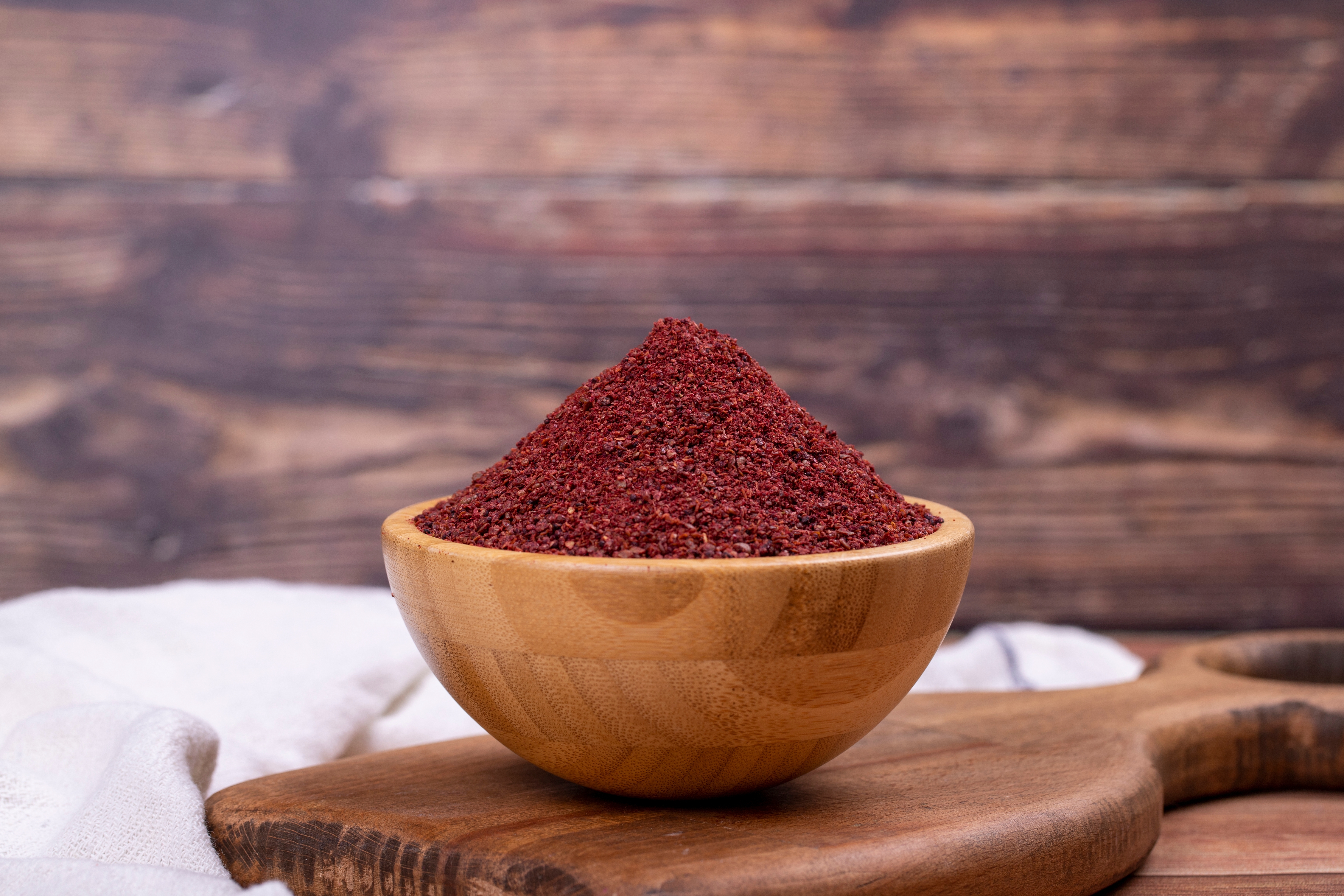
Sprinkling certain spices over your salad can also pack a major punch. Rousselle recommends trying Sumac, ground berries with a bright and tangy flavor.
“I like to sprinkle some on a salad—it brings a zesty lemony flavor that works great with Mediterranean salads like Fattoush or Greek salad. With a good finishing olive oil, they cost more, but you don’t need a lot and they taste terrific,” the chef says.
5
Pomegranate seeds
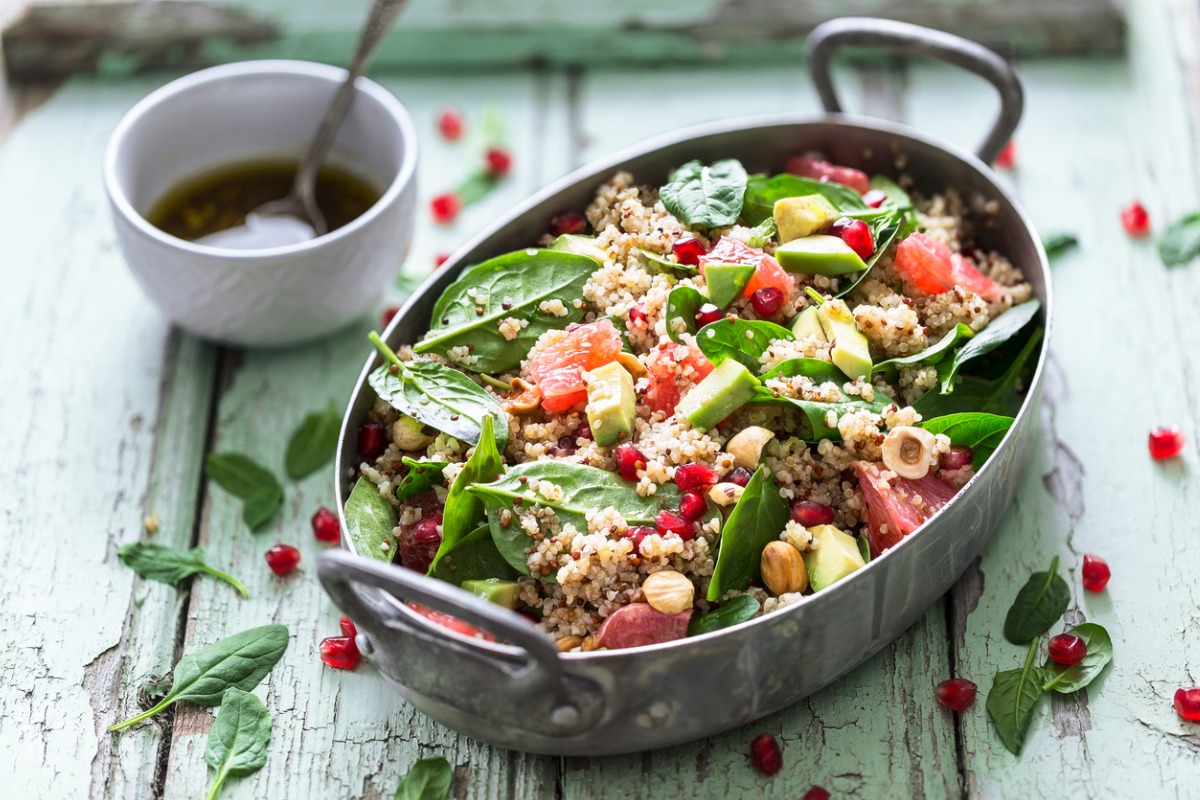
Tart and flavorful, not to mention texturally notable, pomegranate seeds can help punch up your salad with minimal prep work involved, says Forehand.
One simple yet popular recipe includes pomegranates, apple, pear, goat cheese, and pecans atop a bed of arugula. Adding a ginger dressing can help cut the sweetness of the fruit.
RELATED: 10 Healthiest Superfoods to Add to Your Diet, Nutritionists Say.
6
Fresh herbs
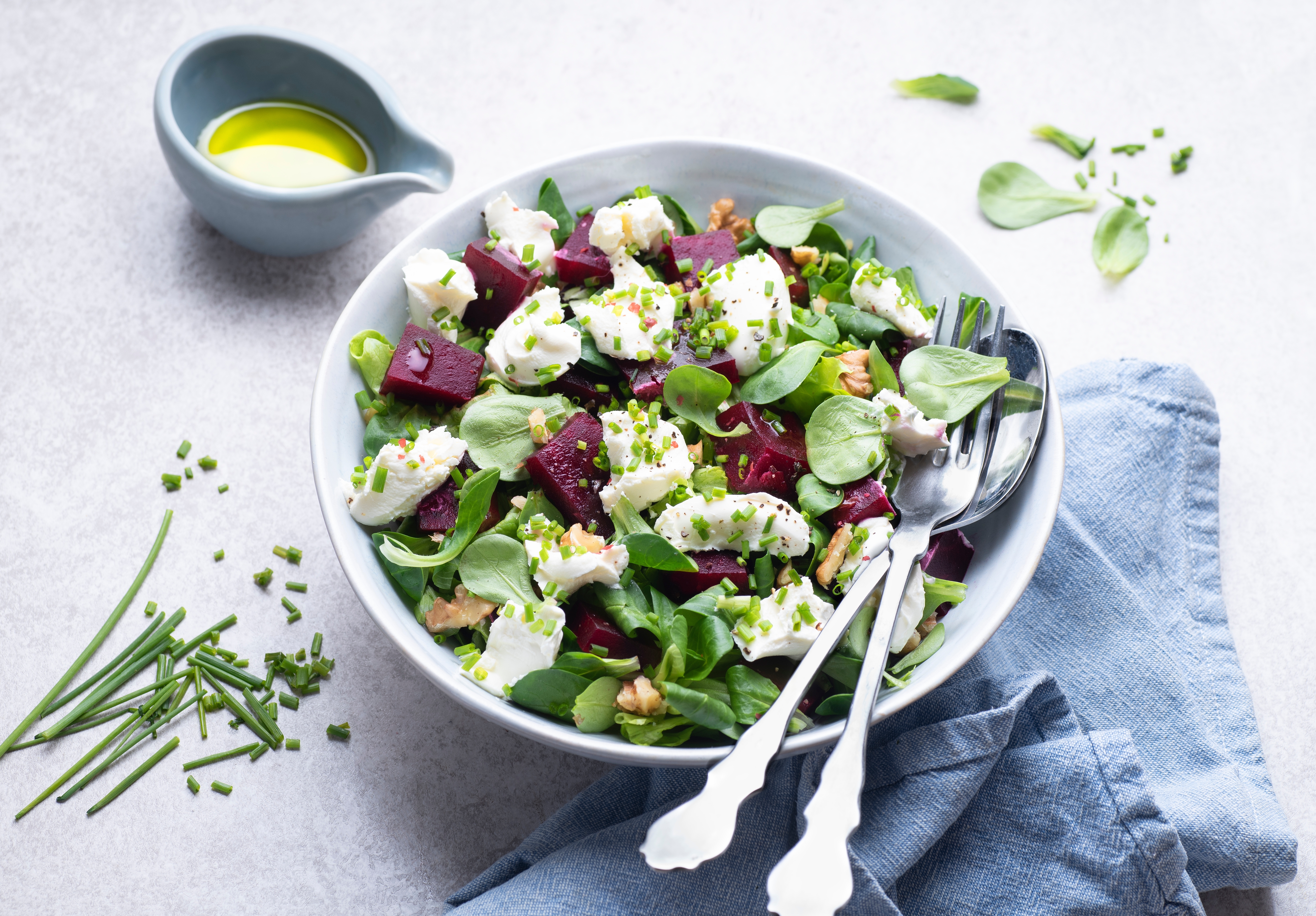
Many people forget the simple power of adding fresh herbs to a salad, but these can transform a recipe and add a welcome complexity to the flavor profile.
“I don’t think that enough people put herbs in their salads,” says Reed Adelson, owner of Virginia’s in New York City. “Oftentimes, when I’m making a salad, I’ll reach for fresh herbs over more traditional toppings like tomatoes, cucumber, etc. Be it chervil chives or dill, they add a nice nuance to a salad and pack the perfect punch.”
Some other all-star salad toppers to reach for include fresh basil, cilantro, oregano, and thyme.
7
Water chestnut or jicama
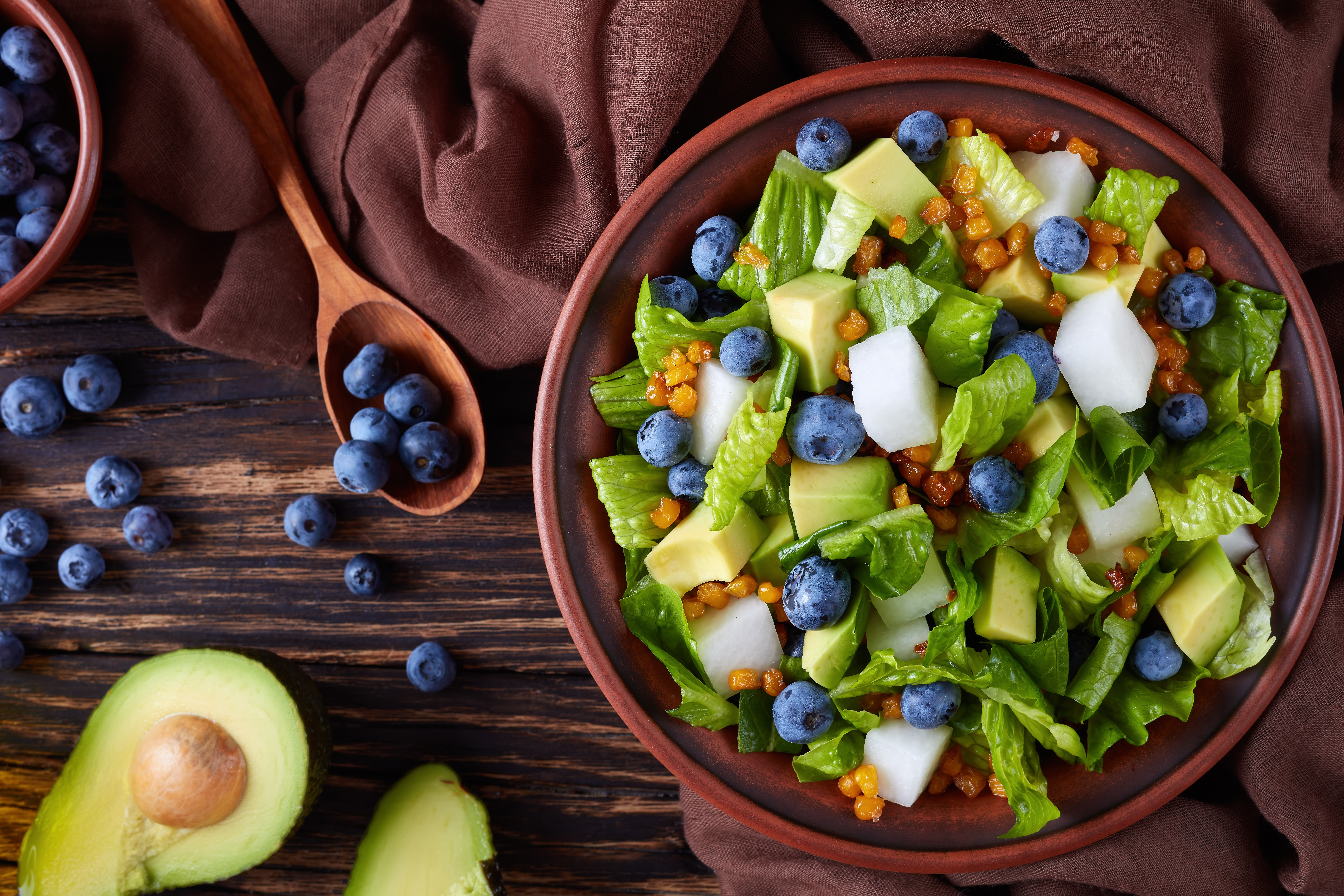
Forehand says that the key to creating a salad that’s both exciting and satisfying is to use a range of textures with intention. “Salads are usually very textural dishes with several crunchy, crisp, and soft texture combinations,” he says.
To that end, the chef says he likes to balance out the extremes of crunchy and soft ingredients with crisp water chestnuts. Jicama is an alternative that serves a similar textural purpose and can be paired with apples and mangoes for a light and refreshing recipe.
8
A tomato base
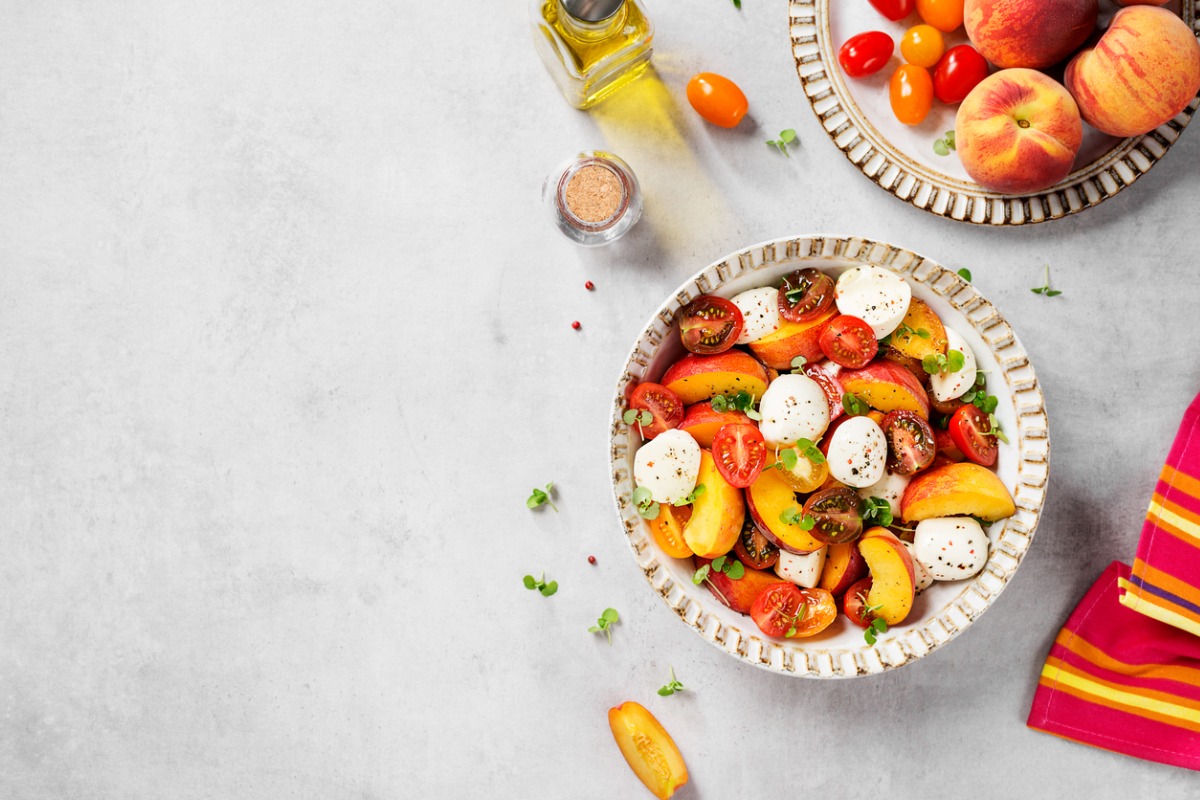
Many people assume that salads have to begin with a leafy green base, but Rafael Mayoral, chef for Hotel Zoe’s Pescatore Trattoria in San Francisco, says a salad can be more interesting without one.
“The most delicious salad to me starts with no lettuce or leafy greens,” he tells Best Life. “I prefer a base of tomatoes and cucumbers with lots of olive oil and nothing sour. This trio is an amazing launching pad for any flavor. You can keep it light and pair it with some fresh seafood, such as prawns or grilled halibut. Or add a touch of salt with some cheese like crumbled feta or cotija.”
RELATED: Fruits That Work Just as Well as Supplements, Science Says.
9
Cooked and chilled grains
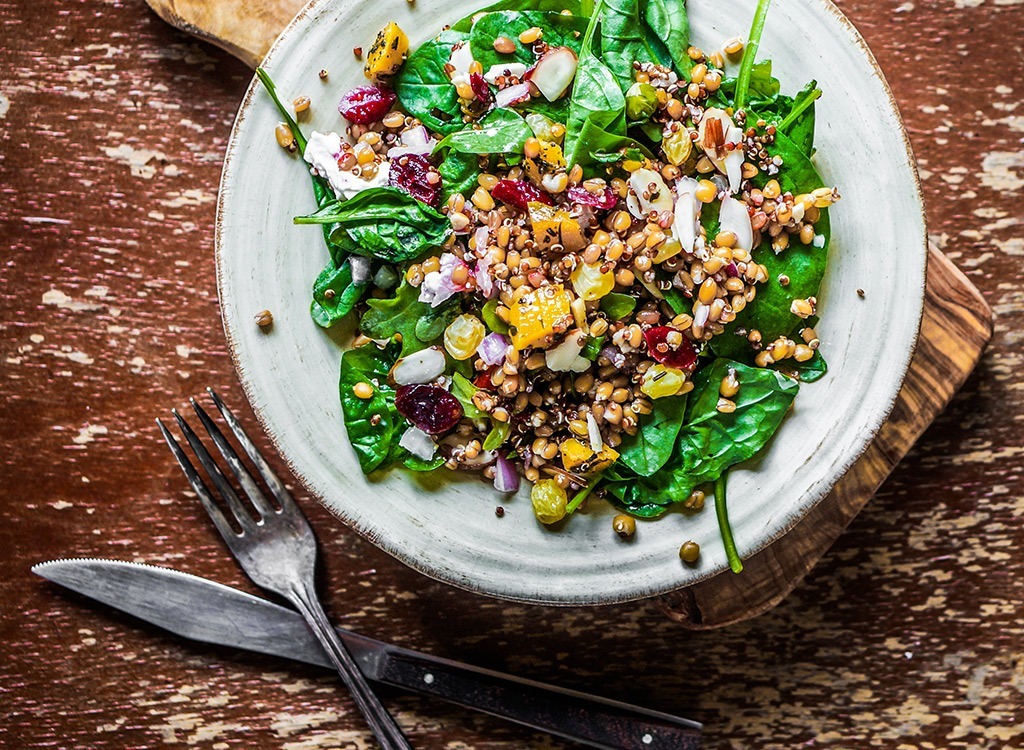
There’s a fine line between a grain bowl topped with vegetables and a salad topped with grains—but you won’t mind blurring that line once you try it. Forehand recommends cooking and chilling whole grains such as quinoa, farro, bulgar, or black rice and keeping them on hand as an easy addition.
10
Sliced stone fruit
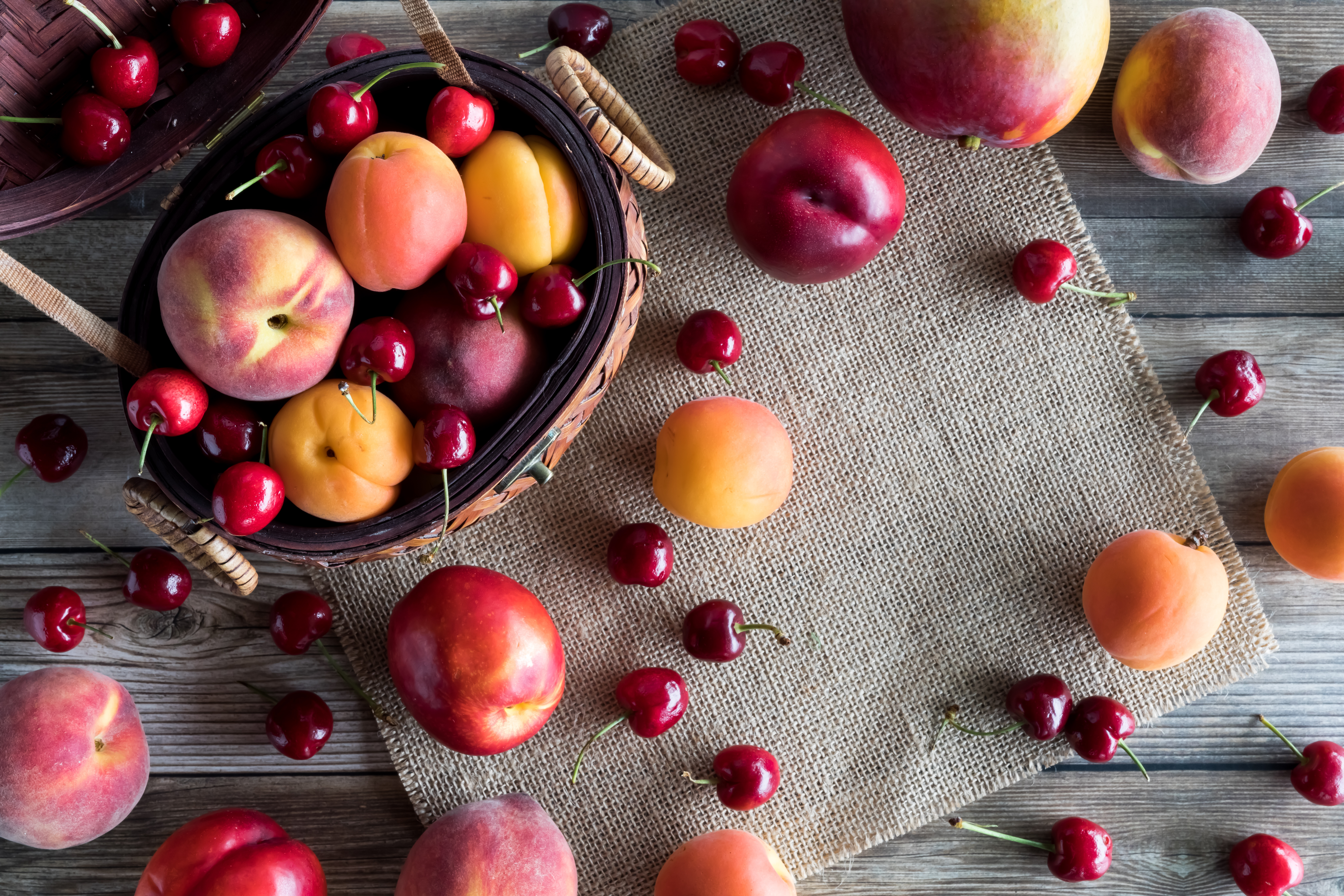
Finally, stone fruits like peaches, plums, cherries, apricots, and nectarines also tend to be underutilized in salads, Forehand says. However, these can add tremendous amounts of flavor to your favorite salad, especially if you soak them in a red wine vinegar and honey marinade to play up their tartness and sweetness.